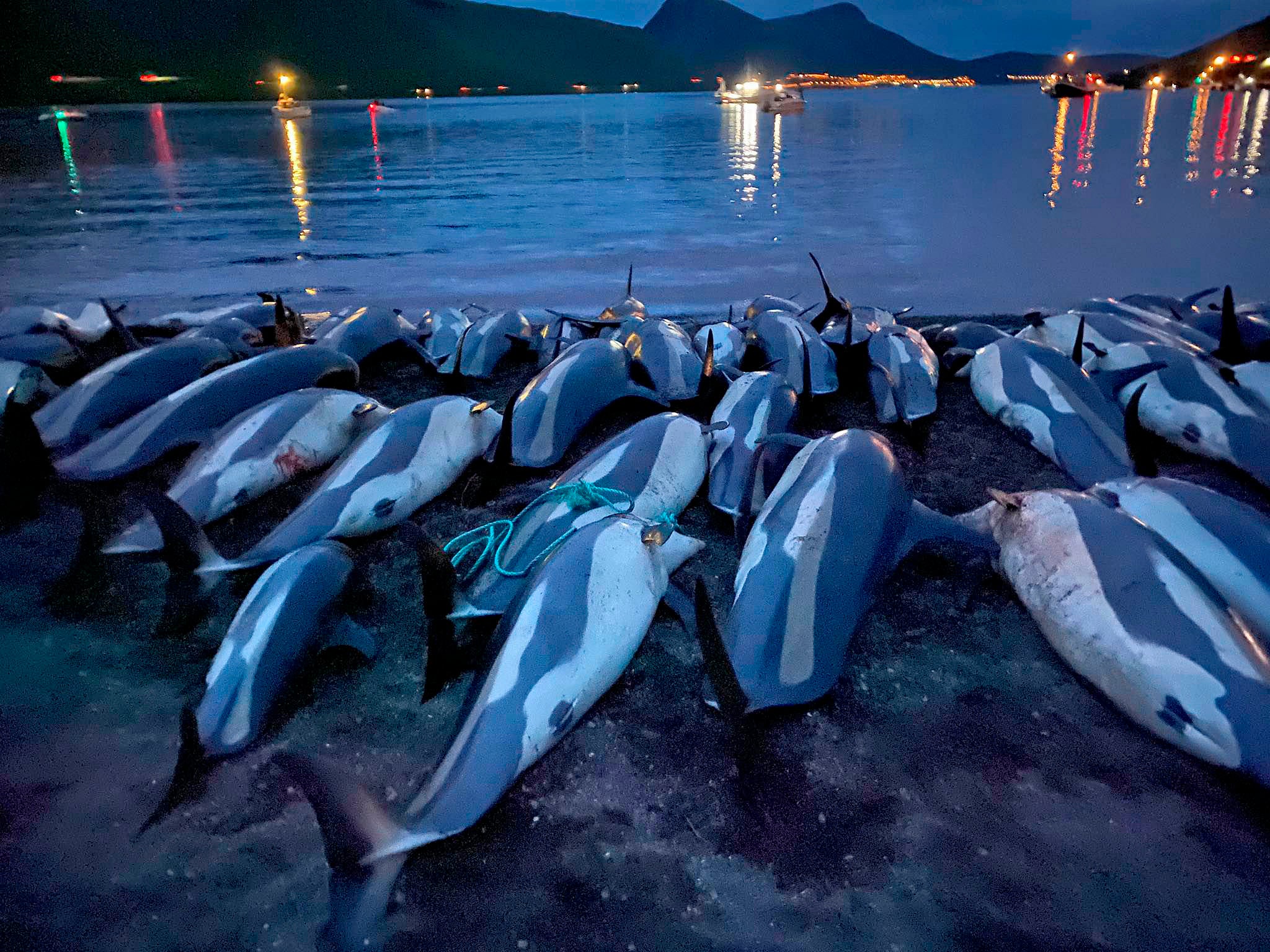Animal rights group: Faeroes should end dolphin slaughters
The animal rights group Sea Shepherd says it hopes that pressure will build from within the Faeroe Islands to end its traditional drive of sea mammals into shallow water where they are killed for their meat and blubber

Your support helps us to tell the story
From reproductive rights to climate change to Big Tech, The Independent is on the ground when the story is developing. Whether it's investigating the financials of Elon Musk's pro-Trump PAC or producing our latest documentary, 'The A Word', which shines a light on the American women fighting for reproductive rights, we know how important it is to parse out the facts from the messaging.
At such a critical moment in US history, we need reporters on the ground. Your donation allows us to keep sending journalists to speak to both sides of the story.
The Independent is trusted by Americans across the entire political spectrum. And unlike many other quality news outlets, we choose not to lock Americans out of our reporting and analysis with paywalls. We believe quality journalism should be available to everyone, paid for by those who can afford it.
Your support makes all the difference.The international animal rights group Sea Shepherd said Wednesday it hopes that pressure will build from within the Faeroe Islands to end its traditional drive of sea mammals into shallow water, where they are slaughtered for their meat and blubber.
A local activist published gruesome video footage of Sunday's slaughter of 1,428 white-sided dolphins on the central Faeroese island of Eysturoy in the North Atlantic archipelago. The number of dolphins was so large — much higher than in previous years — that it appears participants may not have been able to follow regulations to minimize the suffering of the mammals.
“It was a complete disaster, completely unprecedented in fact, it could even be the largest single hunt of cetaceans in documented history anywhere in the world,” said Robert Read, campaign director for the Sea Shepherd Conservation Society.
Environmental activists have long claimed the practice is cruel. But this year even people on the Faeroes who defend the four-century-old practice have spoken out amid fears that this year's slaughter will draw unwanted attention.
“We must admit that things did not go as we would like to," said Hans Jacob Hermansen, the former chairman of the Faeroese association behind the drives. "We are going to evaluate if anything went wrong, what went wrong and why, and what can we do to avoid that in the future.”
Sea Shepherd says it is hoping for “much tighter restrictions” around such hunts and, if not, "at least a ban on the killing of the Atlantic white-sided dolphins.”
Faeroese hunters are used to criticism from animal rights groups and push back at what they see as an interference in a cultural practice.
Each year, islanders drive herds of the mammals — chiefly pilot whales — into shallow waters, where they are stabbed to death. A blow-hole hook is used to secure the beached whales and their spine and main artery leading to the brain are severed with knives, turning water in the bay red with blood. The drives are regulated by law and the meat and blubber are shared on a community basis.
"The killing of pilot whales is not very much different from killing cattle or anything else. It’s just that we have an open abattoir,” Hermansen told The Associated Press. “Everyone can see it ... but if a cow also doesn’t die immediately, you don't stop killing cattle.”
The white-side dolphins and pilot whales are not endangered species.
But Read said Sunday's slaughter was “completely indiscriminate. The entire pod is killed and pregnant mothers, calves, everything.” He added that residents used “power boats and jet skis to chase dolphins and pilot whales for hours on end, they really have no chance of escape.”
Fisheries Minister Jacob Vestergaard said everything this year was done by the book in the dolphin hunt. The Faeroes — 18 rocky islands located halfway between Scotland and Iceland — are semi-independent and part of the Danish realm.
—-
David Keyton in Stockholm contributed to this report.